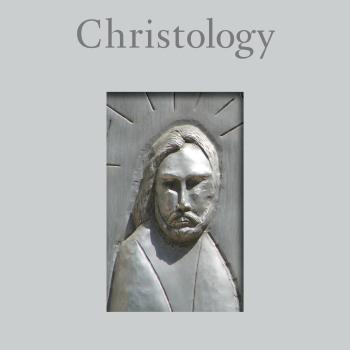Richard Beck has begun a new series on Paul’s theology, after reading (among other things) Gabriele Boccaccini’s book Paul’s Three Paths to Salvation (currently available for only $5 for Kindle!). Here is a taste from Beck’s first post:
Paul thought judgment was imminent. So this time of “holding fast” wasn’t going to be very long. It was a doable proposition. Hang in there, be faithful, the time is short. But as generations have passed, the lag time between justification and judgment has grown. Most of us are “justified by faith” early in life, and we expect to die before the Second Coming. That’s a very long time to “hold fast.” Our moral witness ebbs and flows across the lifespan. And as it does, it brings to our attention those New Testament warnings about falling away. It also raises questions about how effortful this moral journey is. You have to work very hard at it, day in and day out, decade after decade. Which raises the question: Isn’t all this work morphing into a works-based righteousness? Especially when we compare ourselves to believers who are putting in precisely zero work and effort? How, exactly, is justification and sanctification supposed to work? Can those “justified by faith” behave any way they please, for their entire lives, with no consequences? If so, what’s the point of putting in any work at all in following Jesus if none of it matters? Is not faith dead without works? And yet, if we do work hard, and think that work matters before God and will be rewarded by God, are we are not expecting to be judged by our acts of righteousness instead of grace?
We enter here the tempest of questions that have swirled around these issues since Martin Luther. But again, these are our issues, not Paul’s. Paul never had to deal with the theological, moral, and pastoral implications of a delayed parousia.
Click through to Beck’s blog Experimental Theology to read the rest. In his second post in the series he turns to the relationship between Jesus and John the Baptist! I am not sure he comes up with an actual distinction between the two (which doesn’t surprise me). He writes, “Jesus retains John’s vision of a coming judgement…Jesus also teaches, as with John, that this judgment will be focused upon works…It’s difficult to avoid the conclusion that Jesus preached that we will be judged by our deeds on Judgment Day. Both Jesus and John agree on this point…Jesus and John were on the same Second Temple eschatological page.” Read the rest of that post on his blog.
Also related:
Marg Mowczko shares Judith Gundry’s arguments and conclusions about 1 Corinthians 11:2-16
New in Hervormde Teologiese Studies 77/2 (2021): Andries G. van Aarde, “What could Paul have meant by ‘against nature’ (παρὰ φύσιν) as written in Romans 1:26? Striving for the well-being and health of all people.” B. J. Oropeza has a new article out in Religions (also open access, just like the previous one I mentioned) about reader competency and Paul’s use of scripture in Romans.
Dr. Yung Suk Kim explains why “Pistis Christou is a bone of contention”and also offers a new translation of 1 Corinthians 12:27.
Rev. Dr. Jeffrey Frantz argues that Paul was “a First Century Feminist.” Do you agree? Why or why not?
Rillera’s Myth Busting Busting: Romans 8:3 (2 of 7)
Rillera’s Myth Busting Busting: Galatians 3:13-14 (3 of 7)
https://academic.logos.com/paul-a-multicultural-leader/
https://christianscholars.com/covid-19-and-romans-15-part-1-problematic-reunions/
https://christianscholars.com/covid-19-and-romans-15-part-2-pauline-solutions/
What would Righteousness Look Like for Paul’s Original Roman Audience?
N. T. Wright, Galatians (Commentaries for Christian Formation)
https://ehrmanblog.org/a-solution-to-a-major-anomaly-in-the-study-of-paul-guest-post-by-richard-fellows/?utm_source=feedly&utm_medium=rss&utm_campaign=a-solution-to-a-major-anomaly-in-the-study-of-paul-guest-post-by-richard-fellows
https://niedergall.com/galatians-evangelical-biblical-theology-commentary/?utm_source=feedly&utm_medium=rss&utm_campaign=galatians-evangelical-biblical-theology-commentary
https://www.episcopalcafe.com/a-basic-lesson-from-paul/?utm_source=feedly&utm_medium=rss&utm_campaign=a-basic-lesson-from-paul
https://jamestabor.com/pauls-greatest-idea-cosmic-transformation/
Video from the Paul Within Judaism Symposium (HT The Amateur Exegete):
Why Paul’s letters are inadequate for understanding salvation
Desire in Paul’s Undisputed Epistles
Romans 3:22 as snapshot of the gospel
https://stevewalton.info/updated-slides-on-galatians-pauls-most-urgent-letter/
Paul had not abandoned Judaism
Christoph Heilig’s book Paulus als Erzähler? Eine narratologische Perspektive auf die Paulusbriefe is available open access. (HT AWOL)
There are new open access articles that have been published on Paul, empire, and eschatology, the interpretation of the end in Thessalonians, and the power of forgiveness in Ephesians. Also open access is Paul Foster’s article in Expository Times 133/1 (2021) “An Apostle Too Radical for the Radical Perspective on Paul.” A book from 1900 by W. G. Rutherford on Romans has been digitized and made available for free online. See also:
Richard Beck on J. Louis Martyn’s treatment of Paul’s apocalyptic epistemology
Nijay and Mike Bird on Romans 12-15 on Two Testaments Podcast
Mike Bird and Nijay Gupta talk about Paul, Philemon, and Onesimus. Mike also blogged about Paul and masculinity (interacting with and highlighting a recent book on the subject), justification by faith, and Paul and supersessionism. See as well Mike’s post on “Romans 8 and the Assurance of God’s Love in Hard Times” and on “the epicenter of Paul’s gospel.” He also shared this video:
New on the Bible Odyssey website: “Romans and the Fate of Israel”
Bill Mounce on giving credit in Romans, the word γάρ in Romans 12:3, the letter referred to in 1 Corinthians 5:11, and doing everything in love
Bob Cornwall on Abounding in Love and First Things
AJR highlighted a new book about temple language in 1 Corinthians and another about divine politics and polemics in Paul’s letters
Michael Kruger on the “righteousness of God” in the 1984 edition of the NIV
Charles Savelle shared about a new commentary on Romans, as well as multiple posts about Colossians.
Interview with Luke Timothy Johnson in The Christian Century
https://stevewalton.info/slides-on-galatians-pauls-most-urgent-letter/
That series continues on Ben’s blog. From Ian Paul:
Allan Bevere on Paul as ambassador
Not brand new but still worth sharing:
Why the apostle Paul was in prison so often














